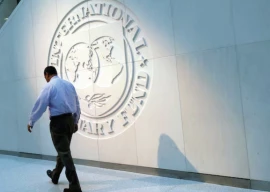
Recently, the International Monetary Fund (IMF) presented a detailed report to the Government of Pakistan, revealing the substantial pensions received by certain government officials. This disclosure, which was also presented in the National Assembly, has highlighted significant disparities in pension distributions, raising concerns about the fairness and sustainability of the current system.
Prominent figures on this list include several former Chief Justices of Pakistan. For instance, in 2023, Iftikhar Muhammad Chaudhry received a monthly pension of Rs1.166 million, Saqib Nisar Rs1.073 million, Sheikh Riaz Rs1.6 million, Umar Ata Bandial Rs0.923 million, Abdul Hameed Dogar Rs1.4 million and Nasir-ul-Mulk Rs1.12 million. These amounts reflect a broader trend where many retired Supreme Court and High Court judges receive pensions ranging between Rs1 million and Rs1.4 million. In stark contrast, numerous retired bureaucrats receive over Rs500,000 monthly, revealing a significant imbalance within the pension system. This disparity highlights an urgent need for a review of how pensions are calculated and distributed among different levels of public service.
The issue of pension disparity is not new, but the recent IMF report has brought it to the forefront of public discourse. The current pension system, designed decades ago, no longer aligns with the economic realities and demographic changes of today. High pensions for top officials contrast sharply with the modest pensions received by lower-ranking employees, creating a system that many view as inequitable and unsustainable.
To address these issues, the coalition government, led by Shehbaz Sharif of the PML-N, is implementing pension reforms. These reforms aim to limit new hires in certain sectors to ten years of post-retirement pension. However, the effectiveness of these reforms depends on their transparency. The National Assembly should publicly disclose the pensions of retired judges, bureaucrats, uniformed officers and other similarly privileged individuals. Transparency is crucial in gaining public trust and ensuring that the reforms are not only fair but also perceived as such by the public.
Moreover, these reforms must be part of a broader strategy to overhaul the pension system comprehensively. This could include revising pension formulas, increasing contributions from high earners, and ensuring that all public servants, regardless of rank, receive adequate post-retirement support. The government could also consider establishing an independent pension oversight body to ensure fair implementation and prevent future disparities.
The current pension system in Pakistan exposes significant disparities that favour high-ranking officials while leaving lower-ranking employees with inadequate support. The government’s proposed reforms are a positive step forward, but their implementation must be transparent and inclusive to address the underlying issues effectively. By ensuring a fair and equitable pension system, Pakistan can better support all its retired employees, promoting a more just society. Ensuring fairness and sustainability in the pension system is not just about financial stability; it is about justice and equality for all who have served the nation.













COMMENTS
Comments are moderated and generally will be posted if they are on-topic and not abusive.
For more information, please see our Comments FAQ